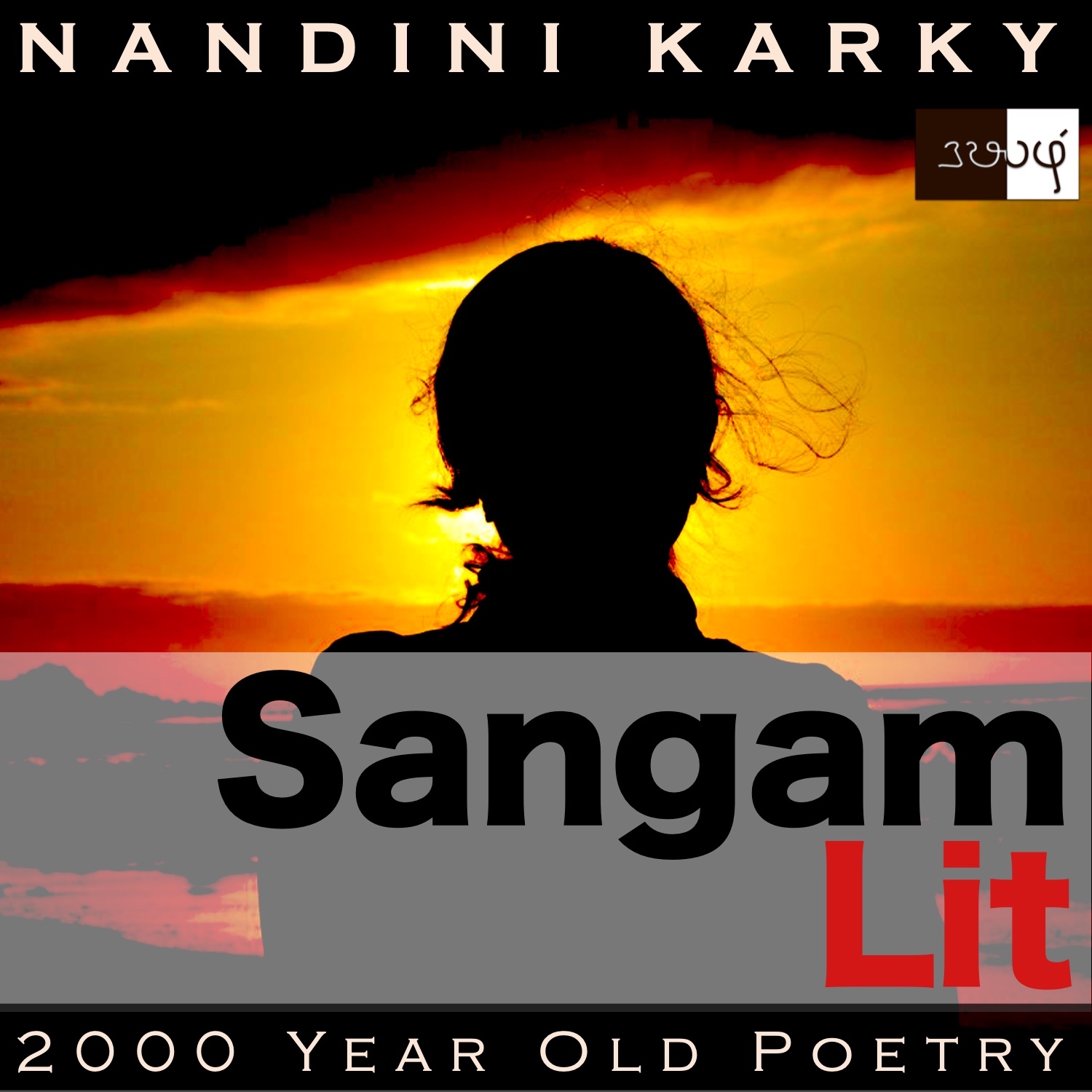Podcast: Play in new window | Download
Subscribe: Apple Podcasts | Spotify | Amazon Music | Android | iHeartRadio | TuneIn | RSS | More

In this episode, we observe scenes at sunset on a seashore, as portrayed in Sangam Literary work, Natrinai 398, penned by Ulochanaar. The verse is situated in the coastal regions of ‘Neythal’ and speaks in the voice of the confidante to the man, about the lady’s state of mind on a prior evening.
உரு கெழு தெய்வமும் கரந்து உறையின்றே;
விரி கதிர் ஞாயிறும் குடக்கு வாங்கும்மே;
நீர் அலைக் கலைஇய கூழை வடியாச்
சாஅய் அவ் வயிறு அலைப்ப, உடன் இயைந்து,
ஓரை மகளிரும், ஊர் எய்தினரே;
பல் மலர் நறும் பொழில் பழிச்சி, யாம் ”முன்,
சென்மோ, ”சேயிழை?” என்றனம்; அதன் எதிர்
சொல்லாள் மெல்லியல், சிலவே-நல் அகத்து
யாணர் இள முலை நனைய,
மாண் எழில் மலர்க் கண் தெண் பனி கொளவே.
Opening with the words ‘உரு கெழு தெய்வமும்’ meaning ‘god, whose appearance evokes fear’, the verse throws the spotlight on the belief of these ancients in scary-formed spirits. Proceeding, we meet with ‘ஞாயிறும் குடக்கு வாங்கும்மே’ meaning ‘the sun fades away in the west’, clearly outlining the time of the day when the colours of dusk paint the skies red. The vivid phrase ‘நீர் அலைக் கலைஇய கூழை’ meaning ‘tresses ruffled by the waves’ hint that vigorous play has been afoot. This is proved by mention of ‘ஓரை மகளிர்’ referring to ‘young girls who play a game called ‘orai’ in the waters’. In Natrinai 68, we saw this game played in a river, whereas in Natrinai 155, there was mention of this game in a shore setting. In this verse, the setting has been ascertained by the phrase ‘பல் மலர் நறும் பொழில்’ meaning ‘groves with many fragrant flowers’, and we can recollect how this spot has been frequently mentioned in a coastal context. The words ‘அதன் எதிர் சொல்லாள் மெல்லியல்’ pack within, a quiet intensity, for it means ‘in response, she speaks not, that gentle-natured maiden’. The verse ends with ‘மலர்க் கண் தெண் பனி கொளவே’ meaning ‘those flower-like eyes fill with tears’ and beckons us within!
The man and lady had been leading a love relationship and the man had been trysting with the lady by day. After his tryst, the man had the custom of leaving to his village. One evening, when the man was about to leave, the confidante says to him, “It was the time when those fear-evoking spirits wouldn’t hide anymore, as the sun’s spreading rays were shrinking in the west. Drying their tresses, tousled by the waves, and letting those fall on their beautiful bellies, the young girls, who were playing ‘orai’ games, have got together and are heading back to the village. Observing these events and praising the many-flowered, fragrant grove, I said to her, “Shall we leave too, O maiden wearing radiant jewels?” In response, she spoke not, even a few words, that delicate-natured girl. But, moistening those newly budding young bosoms on her fine chest, her exquisite, flower-like eyes shed clear tears!” With these words, the confidante expresses the sadness in the lady’s heart when the man parts away and presses him to seek her hand in marriage.
Time to relish the ridges of the shells on this shore! The confidante first talks about the time when fearsome spirits would hide no more. When we are wondering what time that could be, she reveals that it’s the time when the sun has bid adieu to the land and is heading west. Meandering for a moment, let’s delve into the origin of this belief that spirits roam in the dark. Looking back at early human history, when our ancestors had decided to climb down from the trees, and walk on land, at that time, giant creatures may have coexisted with them. The hunting skills of humans may have felled many giants by day. But, at night, the humans were still vulnerable. So, to keep their children and young adults safe, no doubt humans used their budding, imaginative brains to create bloodcurdling stories of giant, nocturnal animals that would keep even the swashbuckling youngsters home at night. In time, the characters in these nightly stories perhaps turned from known animals into fearsome, faceless spirits, and have thus, lived on as lore, in human minds, across cultures and across eons.
Returning to the confidante’s words, we see how she then points to young maiden, who have been playing ‘orai’ games, and are now, squeezing the water out of their ruffled hair. Then, letting these wet tresses fall on the tummies, they are seen walking together towards their village. No doubt they remember those scary stories of spirits that have been ingrained in them! At this time, the confidante points this out to the lady and mentions how she has had much joy in this grove, possibly hinting about the happy times the lady spent with the man. Her friend now adds that it’s time to render thanks to the grove and find their way home. Relating how the lady spoke not even a word in reply to her, the confidante concludes by presenting an image of the lady, frozen in that spot, with her budding breasts glistening with tears that are flowing from her exquisite, flower-like eyes. She may be full of joy when you are next to her but see how she pines for you, the moment you part from her, the confidante seems to be telling the man. Indirectly, she nudges him to give up these temporary pleasures of trysting and focus on the path of permanent happiness. What a friend indeed, who reads the mind of another like her own, and always, does the right thing to slay that sorrow within!




Share your thoughts...